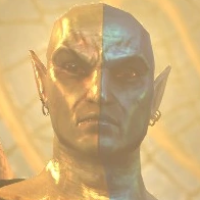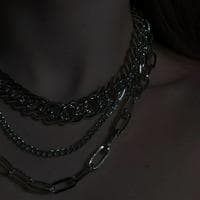Vivec tipo di personalità MBTI
Personalità
"Che tipo di personalità è Vivec? Vivec è un tipo di personalità INTJ in mbti, 4w3 - sx/so - 451 in enneagram, RCOEI in big 5, EIE in socionics."
I wanted to believe Vivec was an INFJ for the longest time, but after going back through Morrowind and meeting the true Vivec (not the one at the height of his godhood in ESO), I've decided he is INTJ. The amount of animosity he shows towards the Nerevarine in Morrowind suggests self preservation and stubbornness. He is impatient, and relays to you that he has no patience for small talk and did not when he was younger either. Clearly, he cares very little for the prophesized hero of legend. Another interesting detail he mentions in in-game dialogue is that he no longer cares for the suffering of his people, and only cares about defeating Dagoth Ur, whose victory would shame his ego. This is not typical behavior of an INFJ, but an INTJ whose selfish ambitions work to benefit their people. The way I finally realized Vivec was an INTJ was by looking at what truly drives him, and it is a strong sense of personal destiny and ambition, for he cares very little for the collective. INTJs have this way about them that I refer to as 'selfish selflessness', meaning that their selfish intentions can and often do manifest as selfless, as they often work to the glory and benefit of the collective - but that is not the main goal. There is no sense of selflessness or martyrdom, which is seen in INFJs (Sixth slot Fi in INFJs cause them to doubt their worth), Vivec, when he arrives at his trial in-game, summons Azura during the trial and humiliates her one last time before teleporting away, and allowing Baar Dau to crash into Vvardenfell, which just shows he really does not care anymore. He is unwilling to let anyone have victory over him, even if it means his people will finally get the justice they want for his punishment. There really is no 'INFJ' traits in Vivec when he is scrutinized in-game in Morrowind. If one only plays ESO, they might be under the impression he is an INFJ, considering he wears a neatly crafted façade for the people he rules. This is not exclusive to INFJs, however. INTJs can have similar behavior, but unlike INFJs, get very tired of being someone they are not after sometime. This reflects Vivec's behavior in Morrowind, when he is seemingly done acting like he gives a fuck, when really, he never did at all. What drove him to grabbing power from Kagrenac's tools, was not a desire to protect his people, but a sense of destiny, and a hunger for being the greatest. Vivec loves to dominate others, and this can be seen in his many sermons, where he boasts of his achievements while simultaneously hiding within the parables everything he has done. Despite his betrayal of Nerevar, whether it was murder or simply acting against his wishes, Vivec feels no real regret, unlike Sotha Sil or Almalexia (both Fe users).
Biografia
Lord Vivec the Warrior-Poet, also known as Vehk, Vivek, and later Saint Vivec, was one of the three immortal god-kings of Morrowind alongside Sotha Sil and Almalexia. A pillar of the Tribunal Temple and the patron of artists and rogues, Vivec is the "transcendent evolution" of the Daedric Prince Mephala, as it is believed Mephala was Vivec's "anticipation" during the Dawn Era. Vivec is also seen as the invisible keeper of the holy land, always keeping a watchful eye over Morrowind, and keeping the evil god of Red Mountain at bay. When referring to his life as a mortal, Vivec describes himself as being very impatient, liking conversation to be quick and down to the point. As a teenager, Vivec was willing to kill, steal, and whore himself out for money without regret. However, his personality changed as he grew older. Vivec shows heavy appreciation for the arts, most notably poetry, which he is said to write every morning. He is often described as being both "beautiful and bloody".
Personalità correlate
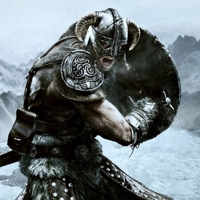
The Last Dragonborn
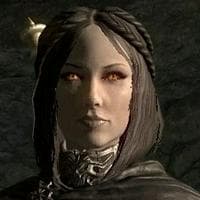
Serana
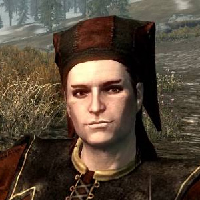
Cicero
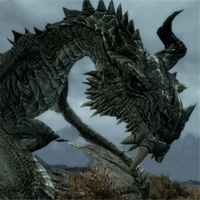
Paarthurnax
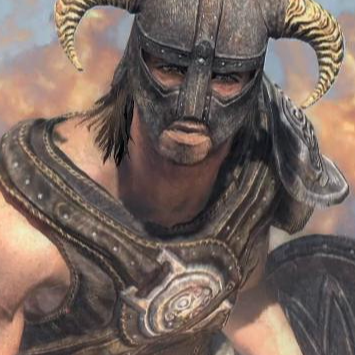
Dovahkiin (Choose your characters type)
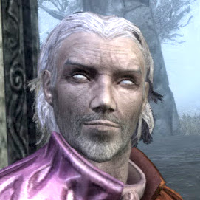
Sheogorath
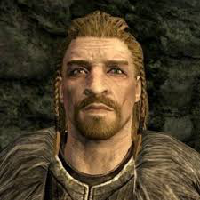
Ulfric Stormcloak
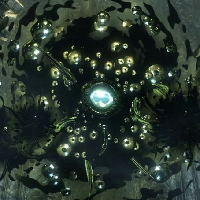
Hermaeus Mora
